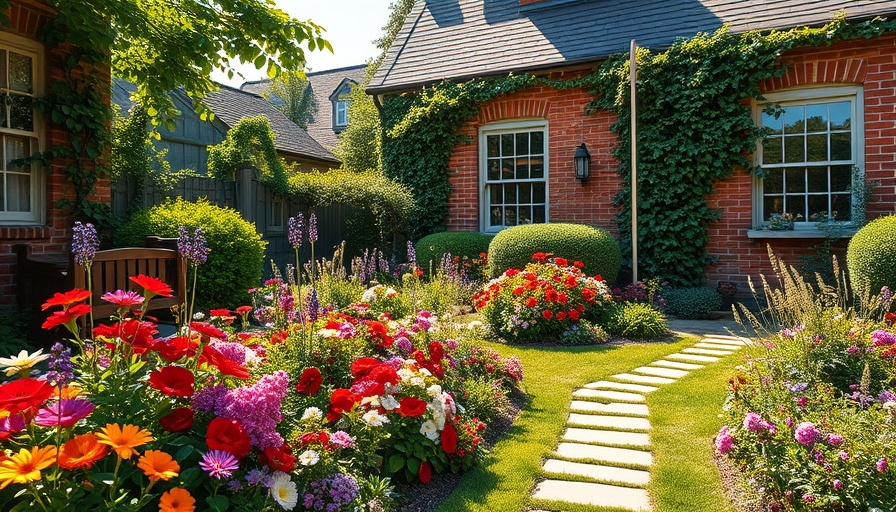
The Uplifting Power of Lemon Balm
Lemon balm, often overlooked, is not just a plant; it’s a radiant reminder of nature’s cheerful bounty. With its lemon-scented leaves, it invites smiles and serves more than beauty—it’s a versatile herb that enriches gardens and kitchens alike. Why is this herb worthy of a special spot in your botanical scheme? Let’s explore its myriad benefits and find out why you’ll be compelled to cultivate it.
The Historical Significance of Lemon Balm
Used since ancient times, lemon balm (Melissa officinalis) boasts a rich historical tapestry. Traditionally, it’s been celebrated for its medicinal properties. Known as a calming agent, it was used by ancient Greeks and Romans to promote relaxation and digestion. Historical anecdotes remark about its effectiveness in easing headaches and anxiety, making it a valuable herb for those who seek solace in herbal remedies today.
Why Choose Lemon Balm for Your Garden?
First and foremost, lemon balm is incredibly easy to grow. Thriving in diverse conditions, from sunny spots to partial shade, it also emits a fragrant aroma that repels pests, making it a natural insect deterrent. Homeowners will appreciate its resilience and adaptability, which allows for a worry-free gardening experience. Add in its very low maintenance nature, and it becomes an essential addition to your outdoor living space!
The Culinary Benefits of Lemon Balm
If you're a culinary amateur or aficionado, this herb will dance delightfully in your dishes. Lemon balm complements a variety of foods and beverages, adding a citrusy zest to teas, salads, and marinades. Its bright flavor accentuates both sweet and savory dishes, making it a versatile ingredient in your kitchen arsenal. Imagine a refreshing lemon balm iced tea on a warm summer day—it’s a taste sensation you won’t forget.
Add a Therapeutic Touch to Your Life
Beyond culinary delights, lemon balm has therapeutic benefits worth noting. Research suggests that it can support mental clarity, alleviate stress and anxiety, and provide a sense of calm. Incorporating this herb into your routine—whether as a tea, tincture, or infused oil—can enhance your mental well-being. Imagine winding down after a busy day with a warm cup of lemon balm tea; it’s like a soothing hug for your mind!
Engaging Your Community with Lemon Balm
Cultivating lemon balm also opens the door for community engagement. Share cuttings, teach friends about its versatility, or even host a workshop on herbal gardening. With a little creativity, you can foster connections while educating others about plant care and cooking with herbs. As you introduce lemon balm not only to your garden but to others, it amplifies the sense of community and well-being that comes from shared experiences.
Future Gardening Trends: Embracing Edible Landscapes
Looking ahead, the trend in gardening is moving towards more edible landscapes—making lemon balm a perfect fit. This herb not only beautifies spaces but also provides practical benefits. As more homeowners prioritize sustainability and self-sufficient lifestyles, integrating herbs like lemon balm will help create timeless gardens that serve both aesthetic and practical needs.
Diverse Perspectives on Cultivating Lemon Balm
While lemon balm may seem like a must-have, some argue about its vigorous growth and invasiveness. However, with proper management, strategies such as potting or regular pruning can maintain its growth. This debate encourages potential gardeners to research and communicate their experiences, fostering a culture of learning and adaptation within the gardening community.
Practical Tips for Growing Lemon Balm
Ready to get started? Here are some practical tips:
- Choose a well-drained soil, enriched with organic matter.
- Plant in early spring after the frost, or propagate from cuttings.
- Water regularly but ensure the soil does not become waterlogged.
- Harvest regularly to encourage bushy growth and prevent flowering.
Conclusion: Embrace the Brightness of Lemon Balm
Incorporating lemon balm into your garden is about more than just enhancing your space; it’s embracing a philosophy rooted in wellness, culinary exploration, and community. The versatility of lemon balm is undeniable—whether used for its flavor, its soothing properties, or its ability to connect people. So why wait? Dive into a world of fragrant herbs and bring home the sunshine that lemon balm promises. Your garden—and your life—will thrive as a result!
 Add Row
Add Row  Add
Add 






Write A Comment